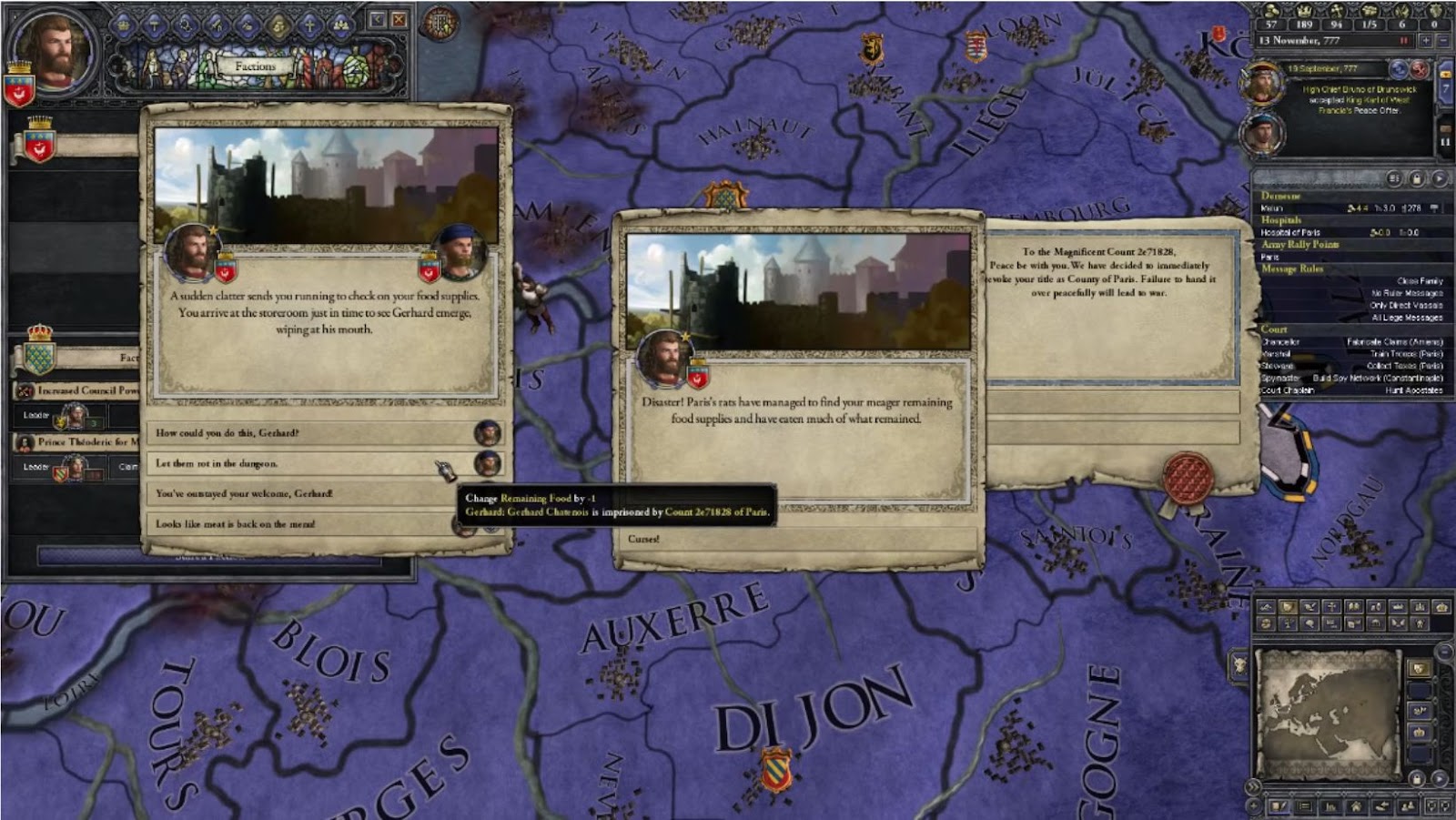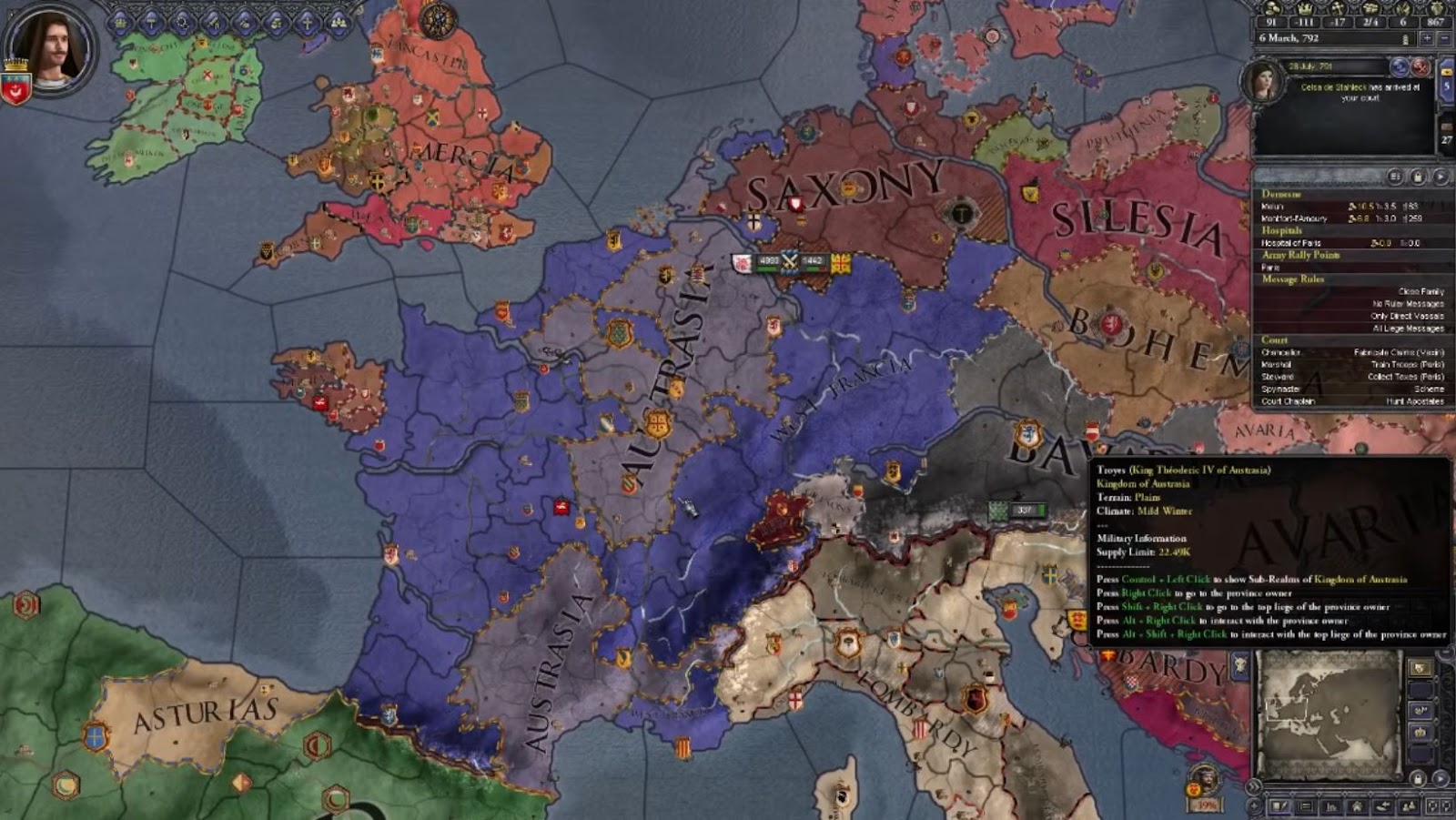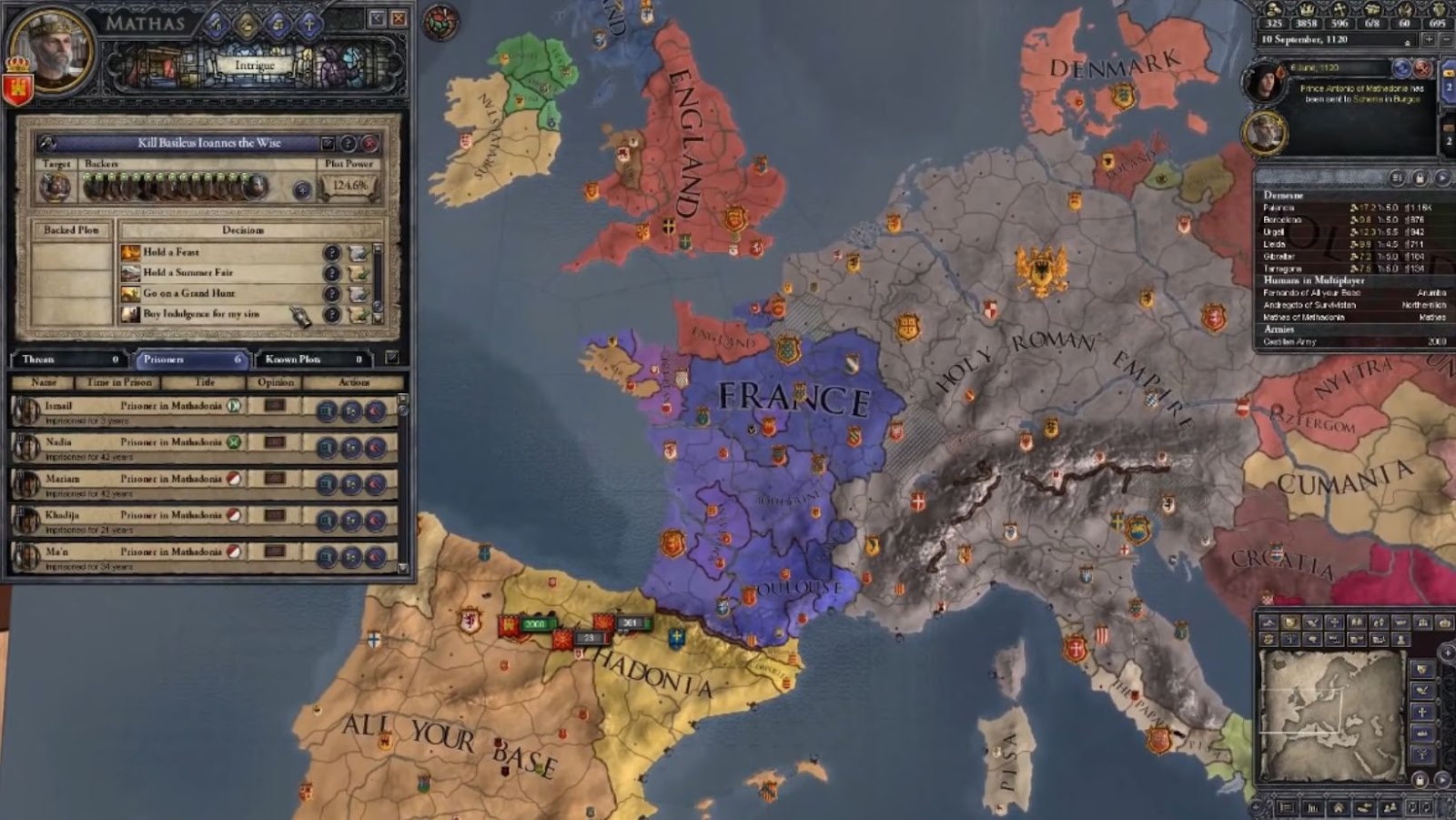
Raiding in Crusader Kings 2 has drawbacks. Outcomes are unpredictable, so you may lose troops or prisoners. Diplomatic consequences may follow raids on neighboring territories. Prestige and reputation can suffer, and there may be rebellions at home. Players should weigh the rewards against the risks and plan raids strategically.
Raiding brings in loot sometimes, but it’s not a reliable income. It’s like gambling with a roulette wheel!
Economic Drawbacks of Raiding
Paragraph 1: Raiding in Crusader Kings 2 Comes with Financial Setbacks
Plundering in Crusader Kings 2 may reap monetary benefits, but it also brings along significant economic pitfalls. Successful raiding results in higher income, but the long-term consequences can outweigh the short-term gains.
Paragraph 2: Economic Implications of Raiding
The economic drawbacks of raiding in Crusader Kings 2 can seriously harm a player’s progress in the game. Raiding results in damaged infrastructure and decreased trade, causing negative impacts on tax collection and reduced income. Additionally, over-reliance on raiding disturbs the regional balance of power, leading to unwanted adversity.
Paragraph 3: Long-Term Impacts
The prolonged effects of raiding in Crusader Kings 2 can have lasting consequences that go beyond the player’s control. For example, raiding may prompt reaction raids, destroying player-controlled infrastructure, resulting in lost opportunities for investment in the future. In addition, the targeted region may build a robust defense mechanism that renders the player’s subsequent raids unprofitable.
Paragraph 4: Better Strategies While Raiding
Balancing raiding with other economic strategies such as improving infrastructure, promoting trade, expanding territories, and investing gained wealth in the local economy help mitigate the economic fallout of raiding. In addition, such strategies can help players reap long-term benefits, building a robust and stable economy.
Raiding in Crusader Kings 2 may be good for your wallet, but it’s terrible for the local economy – unless you’re a funeral director, business is booming.
Negative Effects on The Local Economy
Raiding has dire economic consequences. Businesses lose money, leading to bankruptcy and unemployment. This further scares off potential investors, hurting economic growth. Tax revenue also decreases, meaning less funding for public services.
Moreover, a recent report shows a noticeable reduction in tourism, leading to lower revenue for the hospitality industry.
So, why risk angering someone when it’s much easier to stay in bed and raid your fridge?
Risk of Retaliation From Raided Territories
Retaliatory attacks incurred from raided territories pose an economic threat. Negative consequences from the raid constitute a major economic risk. Geographical reach, political instability, and military conflict can damage the attacker’s economy.
Hostility and lost trade agreements could expand. This affects existing trading relationships, resulting in heavy losses. These factors paint a dangerous picture for any country considering raiding.
International law advocates peaceful dispute resolution. Any attempt at raiding will likely be met with hostility from other countries, either directly or through covert measures, acting as allies to the affected territory.
Raiding is often linked to invasions seeking power and domination. An example is the Japanese invasions of Korea during 1592-1598. Koreans retaliated with guerrilla warfare tactics. This decimated Japan’s army and caused extensive damage to nearby towns and cities, driving Japan out of Korea.
Raiding may bring short-term gains, but the political fallout can be more painful than a hangover!

Political Drawbacks of Raiding
As a ruler in Crusader Kings 2, going on raids can have political drawbacks that can upset your vassals and damage your reputation. Here is a breakdown of the political drawbacks of raiding:
- Loss of Prestige: Raiding reduces your prestige, diminishing your standing among your vassals and weakening their loyalty.
- Increase in Tension: When you raid neighboring territories, you risk raising tensions with your neighboring rulers and their vassals, leading to possible conflicts and diplomatic issues.
- Damaged Relations with Vassals: When you raid within your vassal’s territories, you risk straining your relationship with them, leading to decreased opinion and support.
- Limited Benefits to the Economy: Raids provide a limited boost to your economy, but the negative consequences outweigh the benefits, especially if you raid within your territories.
- Distracting from Core Responsibilities: Constantly raiding prevents rulers from performing their main duties, such as managing their court, administration, and protecting their realm from external threats.
- Inefficient Use of Resources: The resources required to prepare a successful raid may exceed the benefits gained, wasting resources that could have been used in more meaningful endeavors.
It’s important to remember that the drawbacks of raiding can be severe, and it may not always be the best option. Instead, investing in diplomacy and trade agreements can be more beneficial in the long run. However, if raiding is necessary, planning properly to minimize negative consequences is important.
Historically, Viking raids were common in Europe during the Middle Ages. While they brought short-term economic gains, they also caused lasting political tensions that led to conflicts and instability. The political drawbacks of these raids demonstrates the long-term consequences of short-sighted decision making.
Raiding your neighbor’s village may get you some loot, but don’t be surprised when they send passive-aggressive letters instead of dinner invitations.
Damage to Diplomatic Relations
Raiding causes immense damage to domestic policies and disrupts international relations, leading to a lack of trust and respect. This can cause negotiations to fail and sanctions to be put in place. In this increasingly connected world, diplomacy is essential, especially in times of war.
When a country breaches another’s sovereignty without warning, it undermines their trust. Such actions can have devastating effects on a country’s reputation for years, or even decades.
Recently, scepticism has been observed between countries that once shared pleasantries due to raids without prior notice. This could be disastrous for those economies that rely on imports or security agreements from other countries.
We must respect well-established laws and conventions to preserve honour and dignity between nations. We must also strive for transparent communication and mutually beneficial relationships with trading partners. We can avoid these devastating outcomes by honouring each other’s sovereignty through ethical methods. Let us not undermine the essential web of global interconnectedness!
Increased Risk of Rebellion And Unrest
Raiding has been linked to potential uprisings and disruptions. Invading a territory or kidnapping civilians can have far-reaching political effects. This can lead to civil unrest and hostility towards the raiders. Plus, these actions can cause civilian casualties and destroy infrastructure, making locals feel vulnerable and support movements for defense.
Moreover, public support for the government may be eroded if they fail to protect citizens. This can cause insurgencies to take control of land and resources, causing instability.
Therefore, individuals should consider all options before entering another territory without legal procedures. The long-term ramifications can be devastating. Likewise, organizations should look before they leap and consider alternative options that keep everyone safe. Raiding may solve your problems but also creates a society of thieves – a real steal!
How To Raid Crusader Kings 2
Raiding in Crusader Kings 2 can lead to negative consequences for society. It can drive a wedge between cultures and cause conflicts that can escalate into wars. The resulting loss of life and property can set back societal progress for years. Moreover, raiding can lead to losing trust and mutual respect between individuals and groups, damaging social bonds.
Another drawback of raiding is the potential for economic instability. Plundering villages and towns can disrupt trade, cause inflation, and harm the overall economy. In addition, it can lead to a loss of productivity, as people focus on protecting themselves and their belongings instead of engaging in productive activities.
It is also important to note that raiding can hurt international relations. The actions of a single group can reflect poorly on an entire society, leading to strained relationships with neighboring regions and countries. This can be detrimental to diplomacy, trade, and overall peace.
Considering these societal drawbacks, weighing the potential benefits of raiding against the potential harm it can cause is important. While it may seem tempting to raid for quick gains, it is crucial to consider the long-term consequences for society.
Don’t miss out on the opportunity to build a stable and prosperous society by engaging in risky raiding activities. Instead, focus on building strong and positive relationships with neighboring cultures through peaceful means. This way, you can ensure a brighter future for yourself and your people.
Looks like even the virtual gods frown upon pillaging and plundering, with the moral authority of our CK2 character taking a hit.
Negative Impact On The Moral Authority Of The Player’s Character
Raiding can cause a loss of morals for the characters that partake. This could be seen as unethical and result in other players or NPCs viewing them negatively, leading to lack of respect and reliability.
Stealing from innocent players or team-killing are unethical tactics that further damage the character’s moral standing. It’s important to remember the actions within the game world reflect personal values and ethics.
Characters who partake in raiding may be excluded from reputable guilds or groups, meaning they won’t progress as far through the game and limit social interaction with other players.
Pro Tip: Think about how your actions could affect yourself and the people around you too. Empathy and ethical thinking can help maintain good relationships and maintain your character’s reputation.
Loss Of Piety And Religious Authority
Raiding brings devastating impacts to society. People start to lose faith in their beliefs and leaders after religious establishments are pillaged. Sacred institutions, once symbols of morality and righteousness, become ineffective due to the lack of trust from the community.
Religious leaders, who embody societal values, no longer receive respect. This makes it harder for them to teach their followers a moral lifestyle. Moreover, after raiding, citizens begin to doubt divine laws. This leads to godlessness, moral decay, and corruption, further degrading societies.
The loss of purity further causes societal fragmentation and mistrust among communities. People with differing ideas about religion split apart. Without ethical guardians, an atmosphere favorable to corruption and other evils is created. These negative effects pose huge challenges for peaceful coexistence in society.
Steps must be taken to conserve pious practices and educate people on its relevance for collective welfare to prevent these effects. Remember, raiding may bring temporary wealth and power. But, the societal consequences can linger longer than the ghosts of victims.

Conclusion: The Importance of Considering The Drawbacks Before Raiding
Before a raiding mission is embarked on, it’s essential to understand the possible drawbacks that come with it. This understanding helps one weigh options and make an informed decision. In addition, raiders must consider factors like troop loss, the risk of retaliation and the negative effect on diplomacy and relations with other rulers.
Raiding can lead to troop losses, if opponents resist. This could mean losing many soldiers, mercenaries or knights. This lowers morale in the army when they become more careful in future battles. In addition, retaliation from rulers who have been offended can be harmful. They can attack back without warning and form alliances against the raiders, weakening their defenses.
Also, raiding hurts diplomatic ties between rulers. It destroys trust and creates hostility, but does not offer long-term benefits. As time passes, bad relationships between kings can lead to open warfare, causing huge losses for both sides.
Looking at the possible disadvantages before deciding to go on a raiding mission is essential. This allows one to decide if the benefits of success outweigh the risks.











